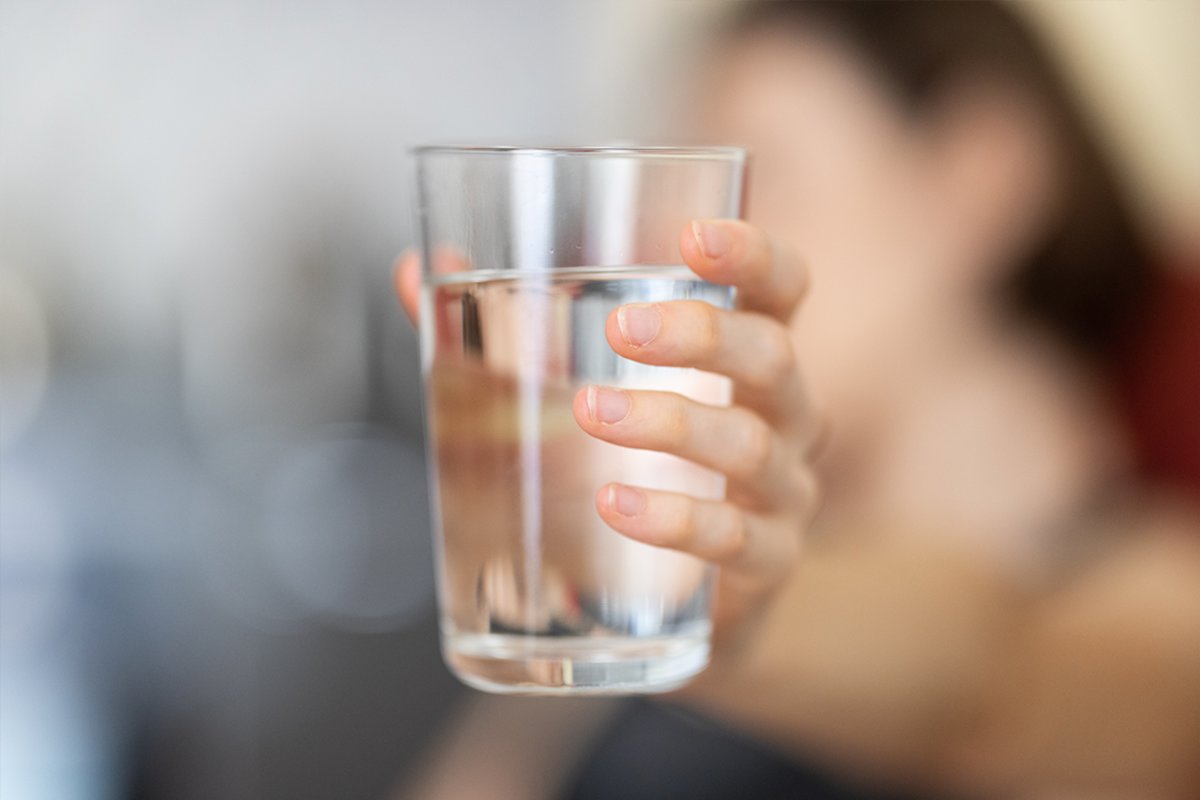

While room temperature water doesn’t have any scientifically noted benefits, warmer water seems to be more compelling with other cultures. “As you might guess, there is little scientific research on the benefits of drinking warm water, although it’s advocated in many cultures,” Amy Shah, M.D., a Columbia- and Harvard-trained doctor and mbg Collective member, previously shared with mindbodygreen. “The only thing that really is plausible scientifically is that by drinking cold water, you are constricting your blood vessels and may not have good absorption, whereas when you drink warm water, your blood vessels are more dilated.”
That said, as noted, traditional practices such as Ayurveda suggest it’s more beneficial to drink water at warmer temperatures. In particular, “The first thing in the morning is the most important time to drink something warm,” Ayurveda expert and author Sahara Rose previously shared on the mindbodygreen podcast. “You’re essentially waking your digestive system back up,” she adds.
Ayurveda often discusses creating heat in your digestion, and in drinking cold water the belief is that you will negate this effect. “Drinking cold or iced drinks can easily put out your digestive fire. You’re better off having beverages somewhere between room temperature and hot,” doctor of chiropractics Sarah Kucera, D.C., previously explained. “Cool drinks can also be warranted, such as in the summer or when you’re feeling too warm. However, consume consciously by making sure it isn’t with food or is at least an hour or two between meals. This way, you can cool off without it being too detrimental to your digestion.”
According to Western medicine, when it comes to digestion, the temperature of your water doesn’t entirely matter for most people. “[However], for people with a condition called achalasia, it does matter,” explains registered dietitian Frances Largeman-Roth, RDN, nutrition expert and author of Smoothies & Juices. “Achalasia is a condition where the esophagus can’t easily move food and liquids to the stomach because the lower esophageal sphincter (LES), which connects the esophagus to the stomach, doesn’t open.”
Only about one in 100,000 people in the U.S. have this condition, but Largeman-Roth explains that drinking warm or room temperature water can help the lower esophageal sphincter relax, while cold water makes the condition worse.
Additionally, if you’re prone to migraines, you may want to be mindful of water temperature. One study published in the Journal of Neurogastroenterology and Motility linked the consumption of cold water as a trigger for headaches, and women who experienced one or more migraines in the last year were twice as likely to have a migraine onset by cold water. However, this is only a single study from 2001, and this association hasn’t been studied much since. What may be more important to note is the evidence that dehydration is closely related to the frequency and severity of migraines and headaches.
